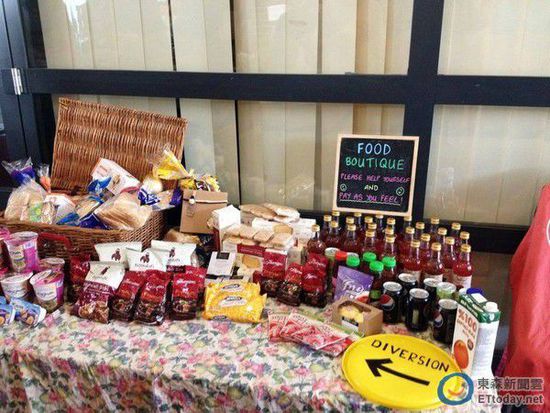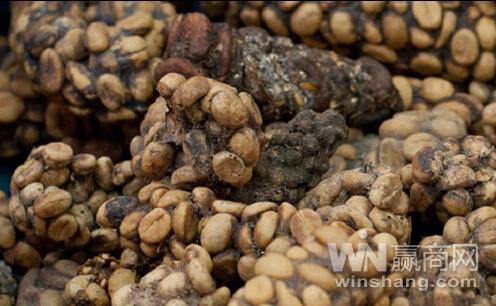Overseas tea industry experts remind: Chinese tea should guard against the threat of coffee
At the second tea industry conference held recently, many overseas experts reminded that Chinese tea should pay attention to the threat from coffee. "Although China is a big tea country, coffee consumption has grown very rapidly in recent years, increasing by about 15% every year. The same is true in South Korea, where coffee consumption has increased by 19.2% annually over the past few years. The main consumer group for coffee is young consumers aged 20-30." Liu Liangxi, vice president of the Korean Tea Society, used a set of data to show the current coffee market in the beverage market.

Sharyn Johnston, CEO of Australia Tea Masters Association, pointed out: "Consumer attitudes are changing now. As consumers become younger, coffee gradually replaces tea as their favorite drink. Coffee has a great influence on tea, especially in Asia. Young people even regard tea as a 'outdated thing'."
Yoo points out that according to his research, tea and coffee sales growth is negatively correlated. Due to the rapid growth of coffee consumption, South Korea tea sales growth slowed down or even declined after 2009. If we do not actively respond, China's tea market may also face this dilemma in the future.
Sharyn Johnston says the Western world is more interested in tea than coffee. This year, the American Tea Association conducted a related survey. Tea sales in the United States have risen for 20 consecutive years. The total annual sales of supermarkets exceed US $2.2 billion. Tea consumption has increased by more than 10% for 10 consecutive years. Statistics from the U.S. Department of Agriculture also show that tea consumption has increased and coffee consumption has declined across the United States. Therefore, internationalization can become a development direction of Chinese tea. On the other hand, it is extremely important to strengthen tea education.
Chiu Kuo-hsiung, vice chairman of the Taiwan Tea Society, points out that coffee can quickly occupy the market, mainly because its exquisite packaging and romantic atmosphere cater to young consumers. Traditional tea can also be like this. Fashion teahouses similar to Starbucks, romantic tea atmosphere, simple and fashionable packaging and brewing methods are all popular with young people nowadays.
Similarly, Liu Liangxi also suggested that Chinese counterparts increase tea consumption among young people by organizing tea-related cultural activities; put more effort into tea products to enrich product categories and forms to cater to the preferences of young people; and effectively use social media and mobile applications to attract young people. (happy news)
Important Notice :
前街咖啡 FrontStreet Coffee has moved to new addredd:
FrontStreet Coffee Address: 315,Donghua East Road,GuangZhou
Tel:020 38364473
- Prev

British "junk cafes" specializing in expired food have become popular.
The junk cafe rescued a lot of food from the dustbin. Photo source: Taiwan's Dongsen News Cloud website reference News reported on October 8 that modern people pay attention to food hygiene and safety, so many food packages clearly indicate the shelf life of food. Once the expiration date is over, people usually regard these foods as bad and choose to throw them into the dustbin. But Ying
- Next

Cat poop coffee: expansion, mergers and acquisitions, listing is still in full swing in the wave of resistance
Coffee Fragrance Guide: On the one hand, there is a concentrated boycott of cat feces coffee, while on the other hand, it is a hot expansion, merger and listing! Novel human beings can always discover unheard of and even disgusting ingredients from nature. However, some of them can be changed into new colors after processing, becoming the most delicious taste on the tip of the tongue. Cat poop coffee, produced in Indonesia, is also known as the most fragrant poop since poop.
Related
- What grade does Jamaica Blue Mountain No. 1 coffee belong to and how to drink it better? What is the highest grade of Blue Mountain coffee for coffee aristocrats?
- What are the flavor characteristics of the world-famous coffee Blue Mountain No. 1 Golden Mantelin? What are the characteristics of deep-roasted bitter coffee?
- Can I make coffee a second time in an Italian hand-brewed mocha pot? Why can't coffee be brewed several times like tea leaves?
- Hand-brewed coffee flows with a knife and a tornado. How to brew it? What is the proportion of grinding water and water temperature divided into?
- What is the difference between Indonesian Sumatra Mantinin coffee and gold Mantinin? How to distinguish between real and fake golden Mantelin coffee?
- What does bypass mean in coffee? Why can hand-brewed coffee and water make it better?
- Unexpected! Ruixing Telunsu lattes use a smoothie machine to foam milk?!
- % Arabia's first store in Henan opens into the village?! Netizen: Thought it was P's
- Does an authentic standard mocha coffee recipe use chocolate sauce or powder? Mocha Latte/Dirty Coffee/Salty Mocha Coffee Recipe Share!
- What is the difference between Vietnam egg coffee and Norway egg coffee? Hand-brewed single product coffee filter paper filter cloth filter flat solution!

